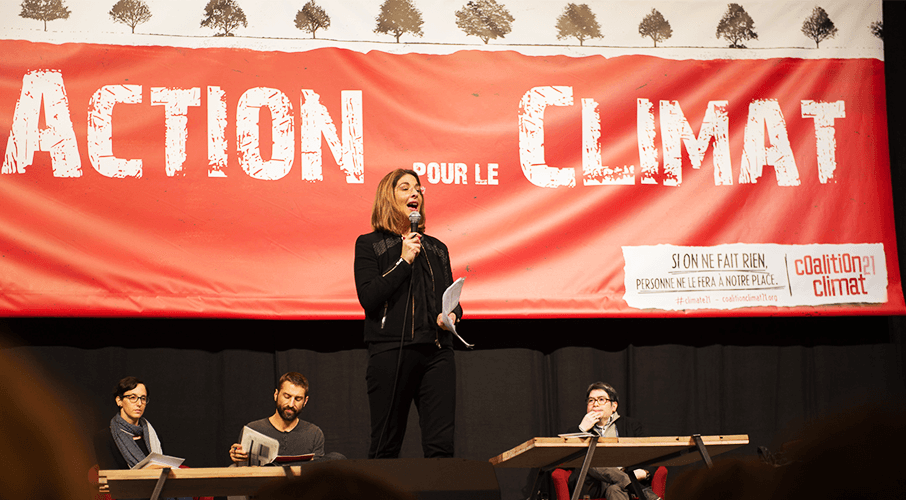
Radical plans to transform our economy should be costed-out at the very start, not the end, of both books and election campaigns, writes Philip Cross.
By Philip Cross, October 25, 2019
Naomi Klein jumps on the bandwagon of publicity surrounding the Green New Deal with her latest book, On Fire. The Green New Deal is the left wing of the Democratic party’s wide-ranging plans for decarbonizing the economy while pursuing free universal health care, childcare and higher education. It is endorsed by most frontrunners for the Democratic presidential nomination except Joe Biden.
Judging by how On Fire was assembled, Klein’s creative energy seems to be waning. Most of it recycles speeches she delivered to anti-capitalist groups ranging from the U.K. Labour Party to the Vatican or simply repeats key messages from teen activist Greta Thunberg and the Green New Deal itself. This dedication to recycling may endear her to environmentalists but not to readers paying for fresh content.
It is curious that today’s left-wing Democrats invoke Franklin Roosevelt’s New Deal as their template for radical change. FDR’s New Deal did not involve the fundamental transformation of the U.S. economy that is envisaged in the Green New Deal. It was not even particularly progressive. To get approval from Southern Democrats in Congress, Roosevelt institutionalized segregation in federal institutions. This is hardly a model for the sort of social revolution Green New Deal advocates contemplate.
The mixed legacy of the New Deal leads Klein to suggest wartime mobilization as a model for the Green New Deal. But this, too, is a dubious model for enduring change. People willingly made enormous sacrifices during the Second World War. However, after six years of deprivation and shortages, voters clearly tired of lower living standards. As a result, in 1945 Britain’s prime minister, Winston Churchill, lost to the Labour Party and Canada’s Mackenzie King was reduced to a minority government, while in 1946 the Republicans regained control of the U.S. Congress after 16 years of Democratic rule. The Green New Deal can achieve its goals only if it is put on a more permanent footing than simply a time-limited wartime commitment to lower consumption.
The Green New Deal does show tactical mastery of the “shock doctrine principle,” a slogan Klein herself coined. The doctrine’s premise is “the exploitation of wrenching crises to smuggle through policies that devour the public sphere and further enrich a small elite.” As she conceives it, it’s a regularly wielded tool of the bad-guy (almost always guy) capitalists. But could there be a better articulation of how the Green New Deal would exploit public anxiety about climate change as a Trojan horse to smuggle in a wide range of social policies unrelated to the environment? Meanwhile, green energy companies like Tesla make fortunes off of their surging popularity among left-wing conspicuous consumers.
The Green New Deal promises a massive shift to public-sector jobs. Klein unwittingly pinpoints one problem with reckless government spending when she boasts “My mother landed a staff job at the National Film Board where she was paid by the government to make subversive feminist documentaries.” She’s clearly oblivious to how many taxpayers resent funding self-indulgent left-wing projects.
Even more revealing of the condescending attitude of environmentalists is how Klein approvingly quotes the enviro-credo that “People need to learn to be led.” So all of our public spending on education is not teaching people to think for themselves but instead is cultivating sheep to unquestioningly obey our new green leaders, even those who are still adolescents.
The mainstream media has demonstrated its wholehearted obedience to environmentalists. Thus when organizers of Montreal’s recent climate change rally claimed 500,000 people had attended, this figure was routinely repeated in press reports despite the obvious self-interest organizers had in exaggerating crowd sizes on a scale not seen since the Trump inauguration — whose similarly overblown estimates this self-same press delighted in ridiculing. Mario Dumont of TVA News was an exception, pointing out that a company specializing in crowd size estimates produced a figure well below 200,000.
How would Klein pay for the massive economic transformation of energy sources and the gusher of social spending envisaged by the Green New Deal? As almost an afterthought she proposes: a global minimum corporate tax, a financial transaction tax, a tax on the wealthy, a crackdown on tax havens, the end of fossil fuel subsidies, and cuts to military spending.
In other words, she adopts exactly the same approach as all politicians in Canada’s recent election, with every tax increase and spending cut miraculously not directly impacting most Canadians. This furthers the myth that there are huge, untaxed reserves of wealth just waiting for governments to purloin without consequence or resistance, while efficiencies in the bureaucracy and less spending overseas mean your favourite entitlement program won’t be touched. Such phantom fiscal proposals may be appropriate for Halloween but do not help inform public debate. Radical plans to transform our economy should be costed-out at the very start, not the end, of both books and election campaigns.
Philip Cross is a Senior Fellow at the Macdonald-Laurier Institute.




